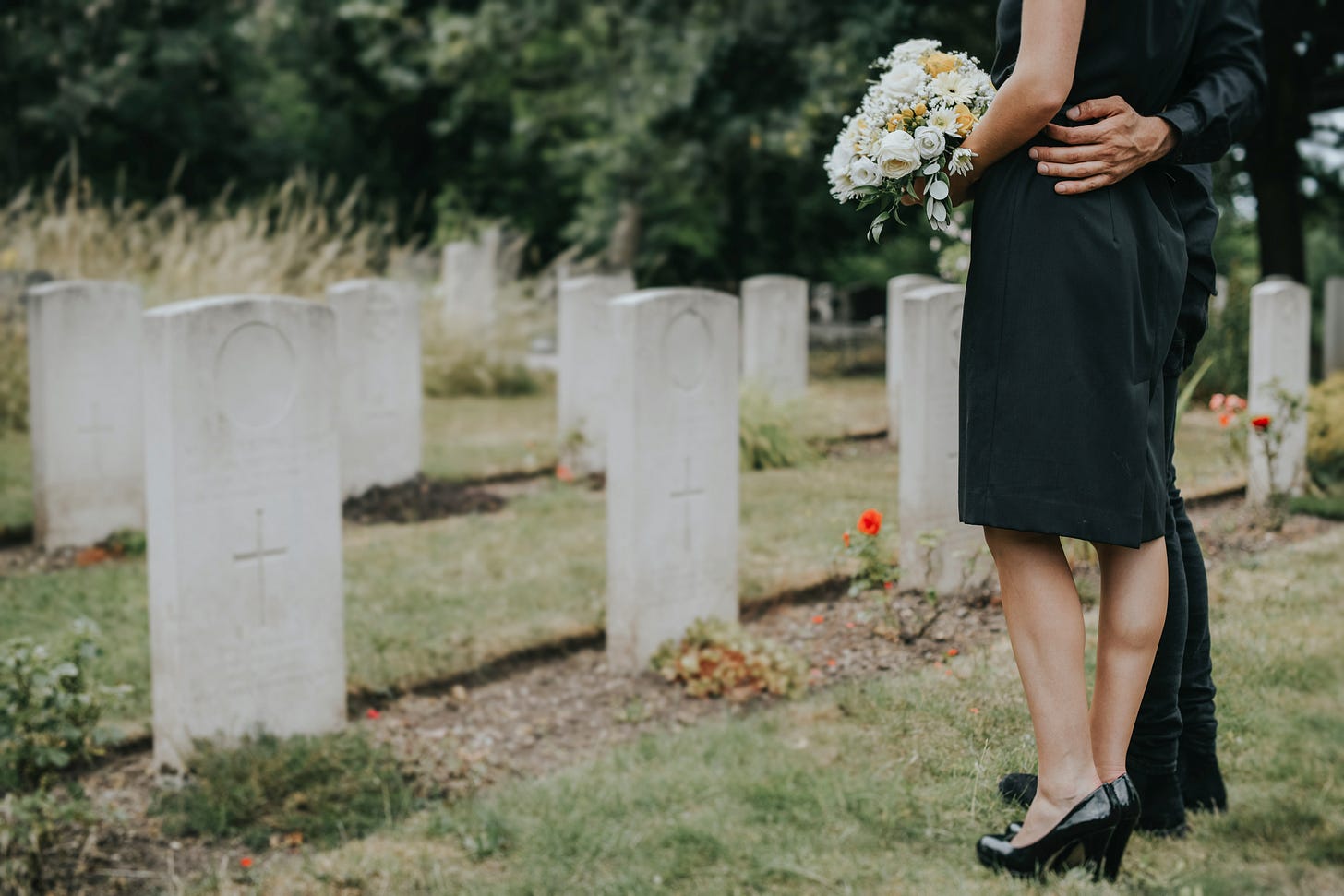Photo by Unsplash+ in collaboration with Curated Lifestyle
My wife and I have been talking about how to handle our final resting places. Not with our friends, of course. The surest way to clear a crowded room instantly is to talk about death. The subject makes most people a bit twitchy.
My siblings and I had that exact reaction when our mother sat the four of us down and demanded that we divide her possessions among us, now, because she didn’t want any bickering or blows when the time came. We said it was premature to talk about her death, and what a morbid conversation, and how awkward this felt. Bottom line: We resisted, she insisted, we complied. In retrospect, she was totally right. Given that her last years were spent in an Alzheimer’s fog, it was good she forced the issue when she did.
Though we may deny being superstitious, many of us have a lingering fear that talking about death just encourages it to come knocking. My view is that we’re all going to die whether we talk about it or not. It seems more compassionate toward one’s heirs to work out the arrangements ahead of time. It’s one less decision for them to make during the whirlwind of confusion, grief, and sometimes relief that overwhelms them when a family member shuffles off their mortal coil.
Consider the Options
With this in mind, my wife and I researched the options. One choice was the one my parents chose – donating their bodies to science. My father’s rationale was that medical schools needed bodies for research and practice, but I suspect his stronger motivation was to spare the family funeral expenses.
Cremation is popular for the same reason – no expensive coffin, no floral arrangements, no burial fee. And if you’re concerned about where to bury 7 billion humans, nothing says compact like an urn full of ashes. But millions of members of our tribe ended up in crematory ovens not that long ago, so we were squeamish about voluntarily tossing our remains in an oven. Also, from an environmental standpoint, studies estimate that one cremation uses as much gas and electricity as a 500-mile automobile journey and releases around 250 pounds of carbon dioxide into the atmosphere.
That brought us back to a traditional burial, in a pleasant green cemetery where our children and grandchildren could visit and gaze at our headstones and tell us how much they missed us, as if we could hear. Nothing wrong with that option, except for the fact that:
.Our bodies might be embalmed with toxic chemicals that don’t mix well with natural processes.
.We might be placed in a varnished, highly decorative casket that won’t decompose easily.
.Our graves will be encased in concrete. This is standard practice in cemeteries and seems to be a way to keep caskets from sinking further into the ground. But it’s not environmentally sustainable, and it defeats the purpose of dust returning to dust.
Green Burial
But this year we learned of another alternative called Green Burial, which seeks to make burials environmentally sound. The idea is to allow human remains to return to the earth in their natural state, where they decompose naturally. In green burials, bodies are not embalmed, no concrete or other material is used for the grave, and the casket or urn or shroud is made of natural, biodegradable materials. Graves are dug by hand, without the aid of gas-powered digging machinery. Instead of vertical headstones or stone mausoleums, the headstones are simple, minimally invasive, composed of natural materials (stone), and placed flush with the ground.
My wife and I took a tour of a new “natural burial” cemetery in our area. The cemetery, by design, is surrounded by acres of forests and meadows that the cemetery developers donated to the county for preservation. The cemetery acreage did not resemble cemeteries we are accustomed to visit. It was not a manicured lawn peppered with stone monuments of various sizes. Rather, it looks like what it is: a natural meadow.
We were sold. We promptly paid for two plots at the top of a hill, overlooking an inspiring panorama of forest and fields. We don’t expect to enjoy the view, but we hope our descendants will.
Hopefully our descendants will also appreciate our foresight in taking one difficult decision off the table for them. The important point is not which option you select, but the value of making a selection now, while it is firmly in your own hands. In the days after you breathe your last, your descendants will have more than enough to worry about between planning the funeral, finding your will, and tracking down your insurance policies, financial statements, bank accounts, and all that. Make it easier on them. Divide up the heirlooms, work out your body’s final destination, and enjoy the satisfaction of knowing you can take your final bow with a clean slate.



Following your Dad's and our mother's and grandmother's plan, I have already done the paperwork to donate to science. I actually like that they fly unclaimed ashes out over the Gulf of Mexico monthly and drop them.
Good for you, Don and Mrs. Don! Americans are really far too squeamish about death, like how they get freaked about where ashes are deposited when they're... ashes. I'm asking to be sprinkled on the Dundee Law, a large lava hill in my Scottish home city, and it's absolutely legal. Green burials are great, but I'm determined to fertilize the green, green grass of home. Oh, and I love that you talk about death. So tired of people passing to the great beyond, dogs "crossing the rainbow bridge" etc. I've twice looked premature death in the eye and told it to bugger off. But it's part of life, not some unfortunate and embarrassing event.